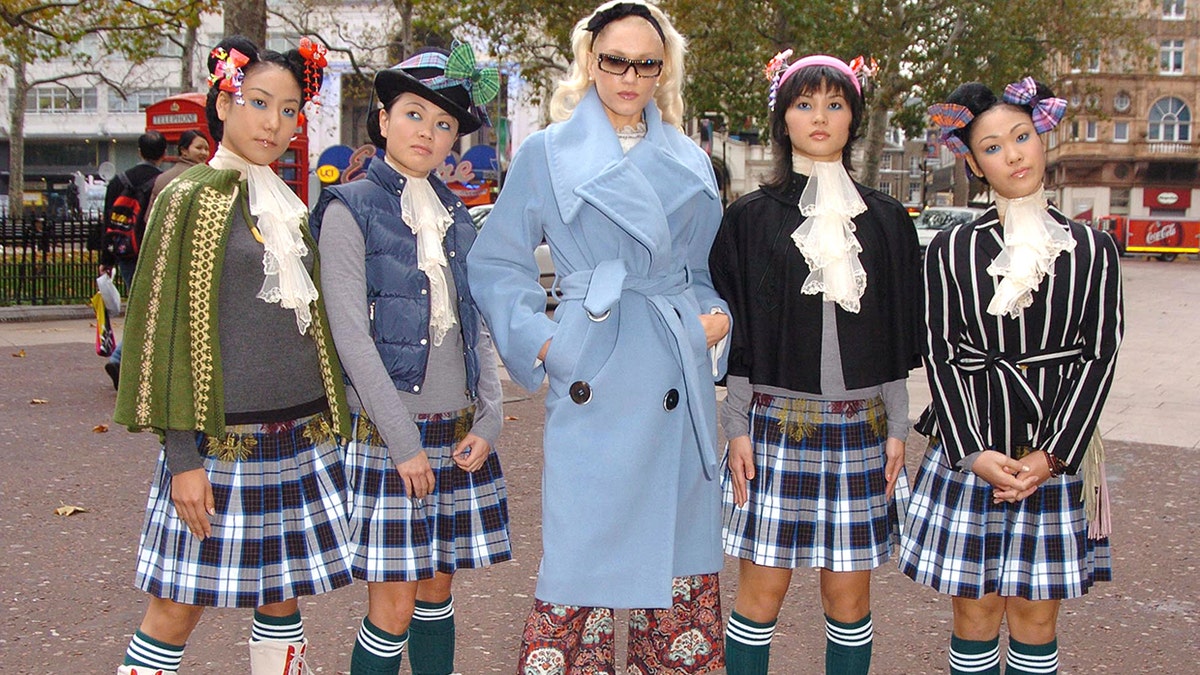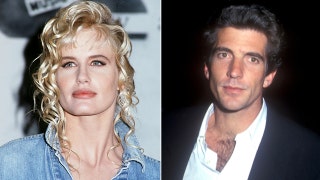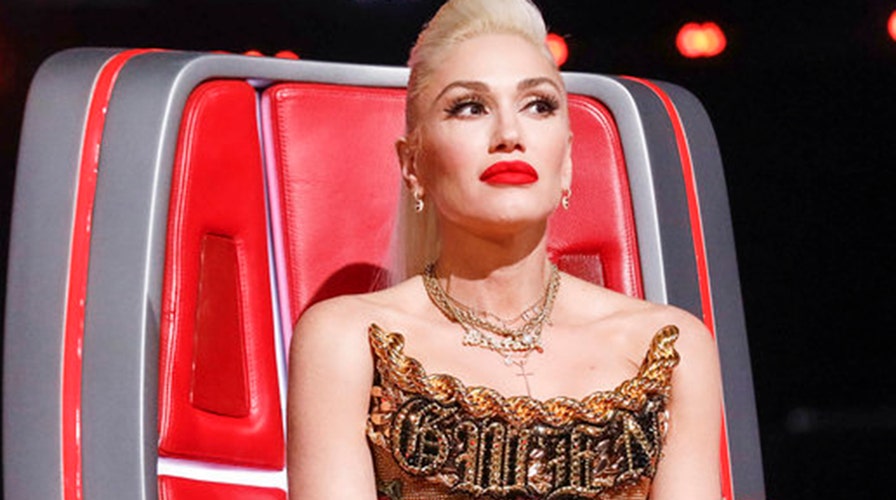Fox News Flash top entertainment headlines for May 27
Fox News Flash top entertainment and celebrity headlines are here. Check out what's clicking today in entertainment.
Gwen Stefani is hitting back at longstanding claims that through her association with the "Harajuku Girls," a group of Japanese-American women known for their steep sense of style, Stefani has been "appropriating" Japanese street fashion.
The "No Doubt," 51, singer fended off criticism in a cover interview with Paper magazine on Wednesday and told the publication that in her estimation, all cultures have inspiration from many outside influences that make it what it is.
"We learn from each other, we share from each other, we grow from each other," she said. "And all these rules are just dividing us more and more."
The Harajuku Girls – a name that originates from Tokyo’s Harajuku district – consists of dancers Maya Chino, Jennifer Kita, Rino Nakasone and Mayuko Kitayama. Stefani has reportedly been appearing with the group since the early days of her solo career in 2004.
GWEN STEFANI WEARS 'DON'T SPEAK' DRESS TO CELEBRATE MUSIC VIDEO'S 25TH ANNIVERSARY

Gwen Stefani arrives with Harajuku girls at Capital FM studios for Johnny Vaughan's breakfast show (Photo by Jon Furniss/WireImage) (Getty)
As one of the obvious fashion capitals of the world, the district itself has even created its own style and fashion brand which sells items centered on the popular Japanese style that includes pops of color and intricate designs.
However, Stefani has been called out for profiting off of Japanese culture and comedian Margaret Cho once compared Stefani donning a Japanese schoolgirl uniform with the Harajuku Girls to "blackface."
BLAKE SHELTON SAYS HE, GWEN STEFANI HOPE TO MARRY ‘THIS SUMMER’
"Even though to me, a Japanese schoolgirl uniform is kind of like blackface, I am just in acceptance over it, because something is better than nothing," Cho wrote back in October 2005.
"I want to like [the Harajuku Girls], and I want to think they are great, but I am not sure if I can," Cho pressed in her essay. "I mean, racial stereotypes are really cute sometimes, and I don’t want to bum everyone out by pointing out the minstrel show. I think it is totally acceptable to enjoy the Harajuku girls, because there are not that many other Asian people out there in the media really, so we have to take whatever we can get."
Over the years, Stefani has maintained the position that she is paying homage to the Japanese culture rather than appropriating it for personal or financial gain pressing that she only fell in love with the culture while touring in Japan back in the 1990s.
"I never got to have dancers with No Doubt. I never got to change costumes. I never got to do all of those fun girl things that I always love to do," Stefani said in her Paper interview. "So I had this idea that I would have a posse of girls — because I never got to hang with girls — and they would be Japanese, Harajuku girls, because those are the girls that I love."
ADAM LEVINE JOKES BLAKE SHELTON, GWEN STEFANI ‘CAN’T AFFORD’ TO HIRE HIM AS THEIR WEDDING SINGER
"Those are my homies," she added. "That’s where I would be if I had my dream come true, I could go live there and I could go hang out in Harajuku."
Elsewhere in her conversation with the alternative long-form magazine, the fiancée of country star and "The Voice" coach Blake Shelton, opened up about speculation regarding her political affiliations, which Stefani believes has been made "pretty obvious who [she is]."

Gwen Stefani poses on the red carpet with the Harajuku Girls at the 32nd annual American Music Awards in Los Angeles on November 14, 2004. (Reuters)
BLAKE SHELTON RECALLS GWEN STEFANI PROPOSAL: 'IT'S KIND OF A BLUR'
"I started my band because we were really influenced by ska, which was a movement that happened in the late '70s, and it was really all about people coming together," Stefani explained. "The first song I ever wrote was a song called 'Different People,' which was on the Obama playlist, you know, a song about everyone being different and being the same and loving each other. The very first song I wrote."
"The whole point of voting, is you have this personal space to feel how you feel," she continued. "I use my platform to share my life story and to engage with people and to exchange whatever gift I was giving."
CLICK HERE TO GET THE FOX NEWS APP
Ultimately, the "Just a Girl" songstress reasoned that she is "not a political science major" so whether or not she openly discusses politics shouldn’t matter much in the grand scheme.
"Everyone knows that. So why would I even talk about [politics]?" she said.
















































